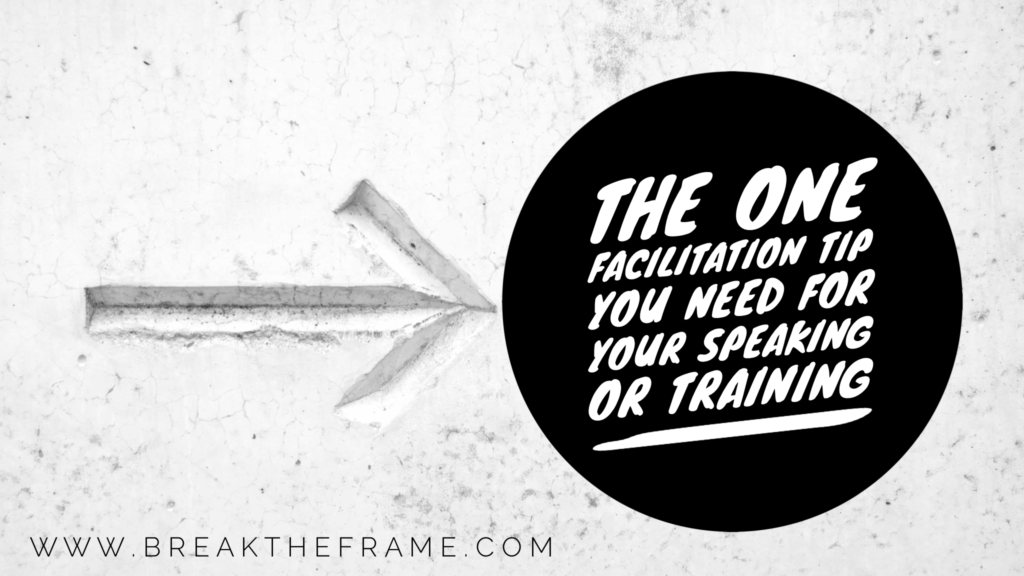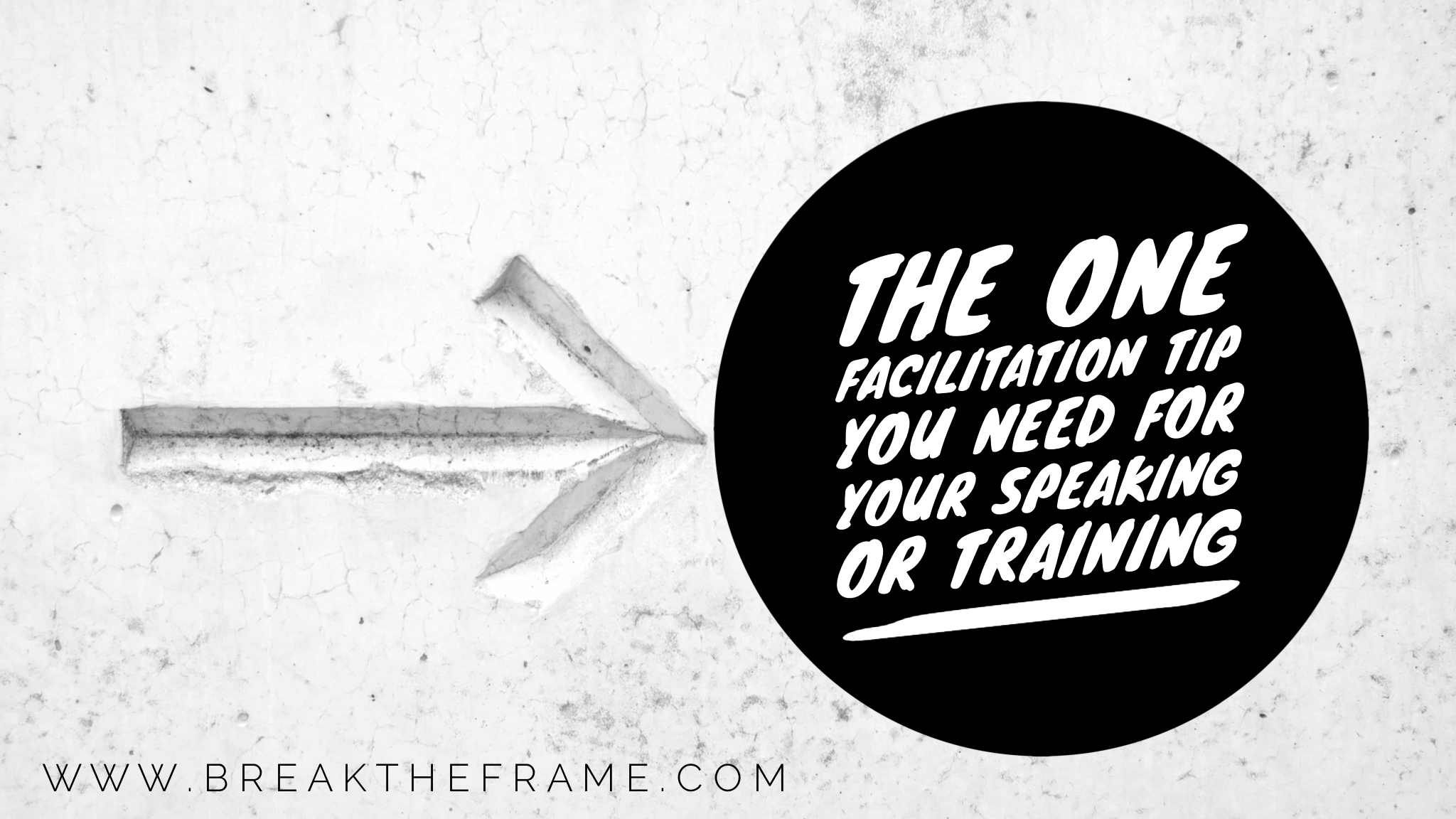
We’ve all attended training classes where the facilitator will suddenly have you get up to do an activity. Maybe it’s keeping a balloon in the air for as long as possible, organizing attendees from tallest to shortest, or by birthday. The intention is usually the same – to break up the energy in the room and get people re-engaged with the content.
When I started my first job out of college, I worked for an organization that took bright, driven people out of university, put them through six weeks of training, and then out on client sites. They taught us what we needed to know in those first six weeks. The first three were in the local office, and the next three were on a learning campus in St. Charles, Illinois.
During my time in St Charles, I was indoctrinated, I mean learning how to be a change management consultant – which meant learning how to design and deliver training for our clients.
Our facilitators were Change Management leaders, typically managers, from offices across the word. My roommate was from Kuala Lumpur, and I made connections with other new change consultants from Australia, England, and all over the USA. I felt a part of something special and was growing my skills daily.
I love games and energizers as much as the next person and use them often in my training and facilitation work. Our class facilitator also loved them and would frequently start post-lunch sessions with energizers or other exercises.
What do you do when a participant disrupts your facilitation flow?
Towards the end of our first week, the lead facilitator guided us to stand in a circle and pass around a ball. I felt like it was a waste of time, didn’t get it, and said so. (If this was a movie, this is the point you’d hear the lovely music interrupted as the needle made a horrible screeching noise and everything came to a halt)
It didn’t go over well.
The class facilitators told me to play along, and I did. After all, I was less than two months into my new job and career with a major consulting firm. I didn’t want to get fired before I did any client-facing work.
Good energizers and training games are more than a brain break
The circle-ball-pass wasn’t the first energizer they had us do as a part of our training. I’d learned the rhythm. They’d stop the work or start post-lunch with a fun activity. Woo Hoo! We were all supposed to get up, smile, stretch our legs, and enjoy the mental break. Clearly, part of their job as our instructors was to show us how we can work energizers and training games into our work with our clients.
What really got me was that it was an energizer without a debrief. Why were we doing it? Why did it matter? What were we supposed to learn from it when we had loads of time-sensitive work waiting for us back at our desks?
I don’t remember, but I’m sure my “bad attitude” went in my write up from my weeks of training. I learned a lot about how to be a consultant, how to write a training manual, connect with others, and what it meant to be a part of this global Firm. However, I also had my willingness to speak up and question things squashed just a little bit.
Here’s the facilitation tip that will positively impact your success as a speaker or trainer
If you are speaking to a group and want to do a fun activity, there’s one essential thing to do when you’ve completed the energizer before moving back into the content. Here’s a facilitation tip that will take you from entertaining to impactful and leave your audience with ahas that will stick.
ASK: Why do you think we just did that? How does it apply to… (what we’re doing today or your job or this change or your work… whatever makes sense in the context of your program).
Keep asking until you get multiple responses. Who else? Why else? What can you add?
Every time I ask that question, I have an answer prepared in case the room is silent, but that’s never been the case. In fact, 100% of the time, I get answers that are powerful and insightful.
Keep people engaged and let them have ahas that come from them, not only from you
If you’re responsible for speaking, training or facilitation, break things up with energizers and get people engaged and involved instead of talking at them. It’s a great practice and learning tool. However, don’t forget that why you’re doing it matters too. People will find meaning in everything. Encourage it; it helps people learn to look for the lessons in everything they do.
Oh, also, if you have someone who doesn’t want to play along, don’t let them derail you. My instructors did the right thing. However, follow up with the person afterward. As a newly minted professional, I wanted to understand, not only cause trouble. You won’t regret hearing what they have to say instead of only patting yourself that you got them back in line before it derailed your program. We can always get better. We do that by not only hearing the good but ways to improve too.
If you want to know my favorite energizers and icebreakers of all time and some facilitation tips to go with them, let me know, I’m happy to share. They work with any group, any topic, and the ahas remain long after your session is over.


Your post was spot on about ice breakers and energizers. Sometimes they can be so over the top and not connect to the rest of the workshop. I always try to enlist what participants got out of the ice breaker and then connect it to the rest of my training. Of course I usually hope for lots of laughter and connection too.
Thanks Alli and will share!
The key really is to help participants make that connection. Loosening up, connecting, having fun, and laughing are definitely key too. I love when people think it’s just a fun activity and then realize that there are many ahas to be discovered that hit home the topic at hand.
The learners in your classroom are lucky to work with such a masterful leadership trainer 🙂
Alli
Excellent tip…breaking the ice or doing any exercise without the opportunity for engagement and generative learning from participants is a missed opportunity.
Well said, Susan! A definite missed opportunity.
Thanks,
Alli
Hi Alli,
I always learn something new from your posts. Thank you. What would you suggest for icebreaker/exercise when doing training with everyone remote (via webex)?
Thanks, Peggy! I will definitely give it some thought and share some ideas with you.
Best,
Alli